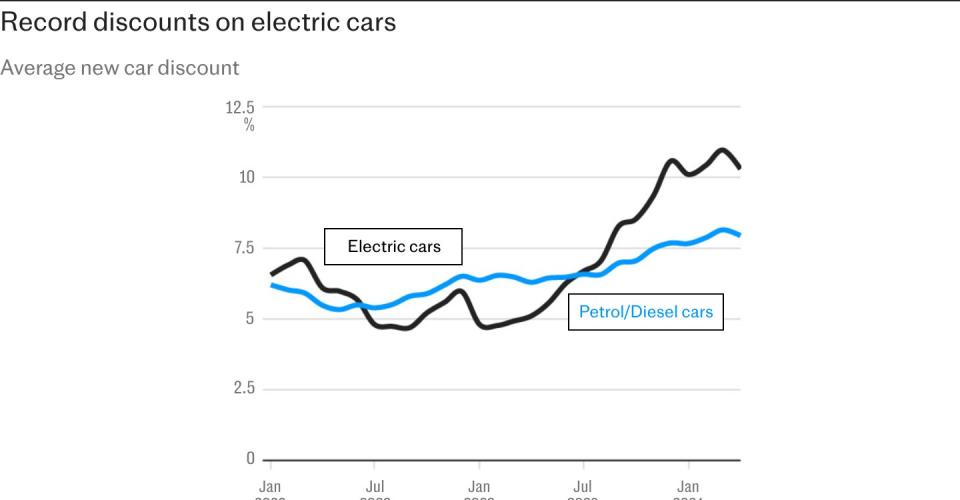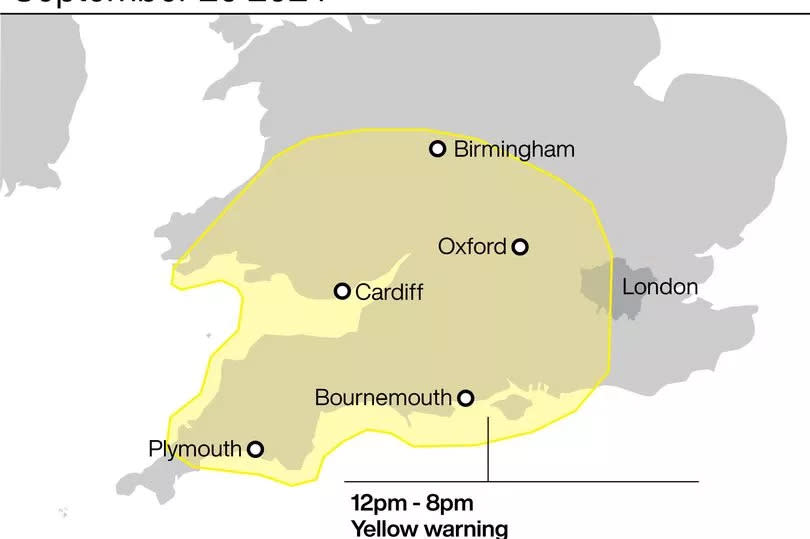Electric cars are up to twice as expensive as petrol or diesel vehicles to run, new figures have suggested.
Running an electric vehicle (EV) can cost more than 24p per mile, while a diesel vehicle is 12.5p.
It costs as much as 80p per kilowatt hour to charge an EV using a rapid or ultra-rapid device on the roadside, according to data from the app ZapMap.
A typical electric car will travel 3.3 miles for every kWh of electricity used, meaning rapid and ultra-rapid chargers currently cost the equivalent of 24.1p per mile, calculations by The Times suggest.
Slower chargers cost 16.4p per mile.
This is around double the average diesel car, which will do 43 miles per gallon, resulting in a cost of 12.5p per mile at current prices. A typical petrol car costs 14.5p per mile, according to the analysis.
A return journey from London to Penzance would cost £148 in an electric car using rapid chargers, the Times said, compared with £77 in a diesel car and £89 using petrol.
It added that at-home charging is much cheaper at less than a third of the price of the average rapid charger.
ZapMap found that prices at rapid chargers have increased 5 per cent over the past year, despite a 30 per cent decrease in the wholesale cost of electricity.
This has coincided with a fall in the price of oil.
Even drivers who choose slower public chargers – the threshold is 50 Wh of power, allowing a full recharge in around 30 minutes – are paying more per mile than petrol and diesel drivers.
There was a 40 per cent increase in the number of rapid or ultra-rapid charging stations across Britain, bringing the total to more than 12,500.
However, recent figures show sales of electric cars have significantly slowed.
They account for 17.2 per cent of all new registrations since the beginning of 2024. This marks a decrease from the 18.7 per cent high in the latter half of 2022.
According to analysis, rapid and ultra-rapid chargers currently cost electric car drivers the equivalent of 24.1p per mile, while slower chargers cost the equivalent of 16.4p per mile.
Mike Hawes, chief executive of the Society of Motor Manufacturers, told The Times: “It’s tough out there. Levels of demand are much, much softer.”
Sales of electric cars in Europe are performing even worse than in the UK, with figures showing registrations were down by 44 per cent in August.

At-home charging is normally significantly cheaper than using public points. However, a large number of households in the UK – nearly half – live in either terraced properties or flats, meaning they cannot use a driveway or garage to allow charging at home.
The AA has called for the Government to synchronise the level of VAT on chargers, which is now 20 per cent, with the rate levied on at-home electricity, which stands at 5 per cent.
Thom Groot, founder of the Electric Car Scheme, said: “We need to keep stimulating demand with incentives and supporting consumers in making the switch. The fact that people who charge at home pay less VAT than those who use public chargers is unfair.”
There is also pressure on the Government to consider cutting VAT on electric car sales or exempt electric cars from a new “luxury car supplement”.
The supplement promises to impose a higher rate of road tax to cars that cost more than £40,000.
This is expected to impact about two-thirds of electric cars.
EMEA Tribune is not involved in this news article, it is taken from our partners and or from the News Agencies. Copyright and Credit go to the News Agencies, email news@emeatribune.com Follow our WhatsApp verified Channel





